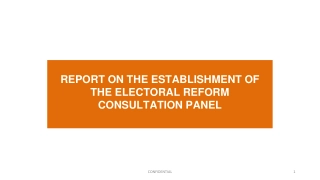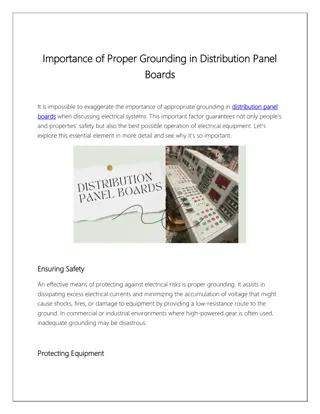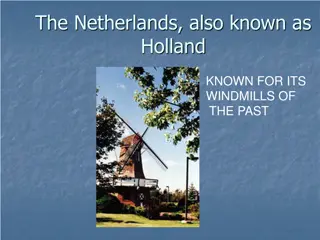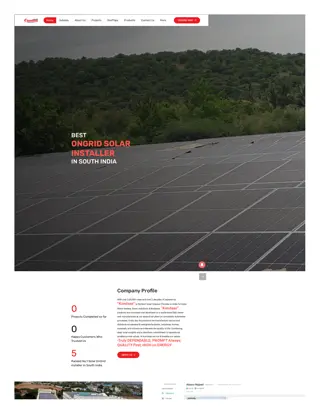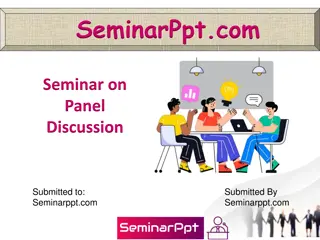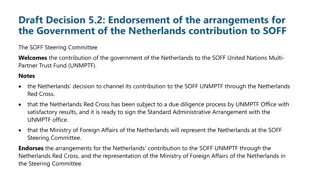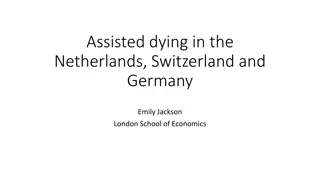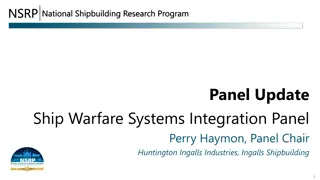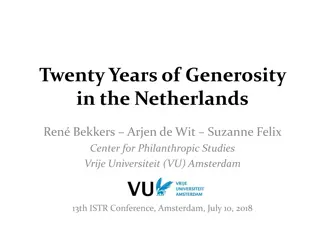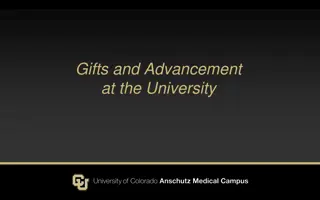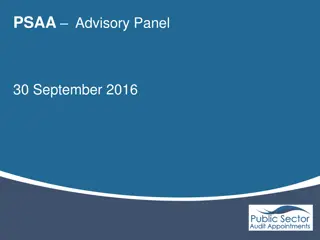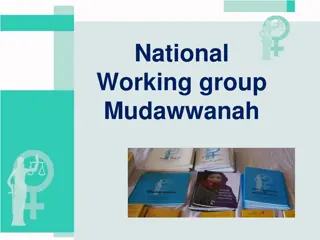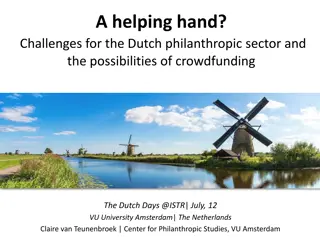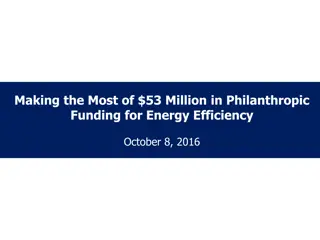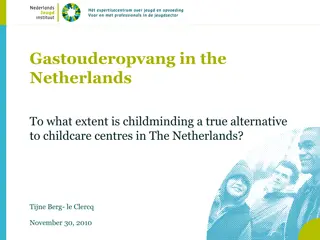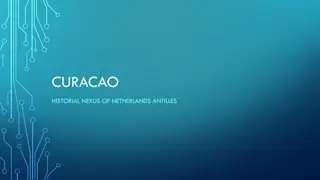Philanthropic Studies in the Netherlands Panel Study
The Netherlands Panel Study on Philanthropy, conducted by Ren Bekkers at Vrije Universiteit Amsterdam, explores giving behavior, volunteering, and social values among households. The study provides macro-economic estimates of philanthropy, tracking around 2,000 households to understand the size and nature of charitable actions. Utilizing a panel methodology since 2002, the research offers insights into the motivations behind donations and volunteering, shedding light on the dynamics of philanthropic behavior within Dutch society. Funding from various ministries and organizations supports this comprehensive examination of philanthropy in the Netherlands.
Download Presentation

Please find below an Image/Link to download the presentation.
The content on the website is provided AS IS for your information and personal use only. It may not be sold, licensed, or shared on other websites without obtaining consent from the author.If you encounter any issues during the download, it is possible that the publisher has removed the file from their server.
You are allowed to download the files provided on this website for personal or commercial use, subject to the condition that they are used lawfully. All files are the property of their respective owners.
The content on the website is provided AS IS for your information and personal use only. It may not be sold, licensed, or shared on other websites without obtaining consent from the author.
E N D
Presentation Transcript
RESSTRUCTURING LEBANESE PUBLIC ADMINISTRATION: FROM FACTS TO RESULTS PROFESSOR GEORGES T. LABAKI PROFESSOR GEORGES T. LABAKI CHAIRMAN OF THE NATIONAL SCHOOL OF ADMINISTRATION
OUTLINE OIntroduction OCurrent situation OChallenges OBasic assumptions ORoad map OConclusion
INTRODUCTION O Urgent need for restructuring of the Lebanese Public Administration (Hierarchy dates back to 1959)
CURRENT SITUATION Old Old Rigid Rigid structure structure structures structures Major changes Major changes in PA since in PA since 1959 1959 Partial Partial administrative administrative deconcentrating deconcentrating
CHALLENGES What do I want? Moving from traditional legal norms to public management. Political will Resistance to change from internal and external environment
BASIC ASSUMPTIONS O Need for downsizing due to budget constraints O Administrative decentralization as stipulated by the Taef Accord. O Strict centralization
BASIC ASSUMPTIONS Need for Need for change of change of culture culture Strict hierarchy Strict hierarchy Lack of Lack of mobility mobility
ROAD MAP Strategic Strategic framework framework Digital Digital government government Political will Political will Privatization Privatization PPP PPP Downsizing Downsizing Reducing the Reducing the number of number of Ministries Ministries
ROAD MAP O Changing the KADAA to MOHAFAZAT O Reviewing the division of JOBS (FROM & TO 4) O The reviewing the role of the authority of supervision
ROAD MAP Shall we delegate financial power and power hiring? Or should it be joint with current organizations? Public procurement autonomy Deleting or merging agencies
ROAD MAP Full time or contracting? Or both? Horizontal or vertical emphasis? Redesign of Vision, mission and the Raison d etre
ROAD MAP Every ministry should include: IT, and Human Resources Office. Inspection: Internal or external Flexible salary framework Mobility Taking previous experience into consideration Revision of the disciplinary status: Focus on productivity
ROAD MAP Specific employment contract Change of culture: From forbidding to Trusting Career Career path path pyramid pyramid
CONCLUSION O LEADING CHANGE O INFLUENCING POLICY MAKING PROCESS O CHANGE OF CULTURE
Thank You PROFESSOR GEORGES T. LABAKI PROFESSOR GEORGES T. LABAKI CHAIRMAN OF THE NATIONAL SCHOOL OF ADMINISTRATION


